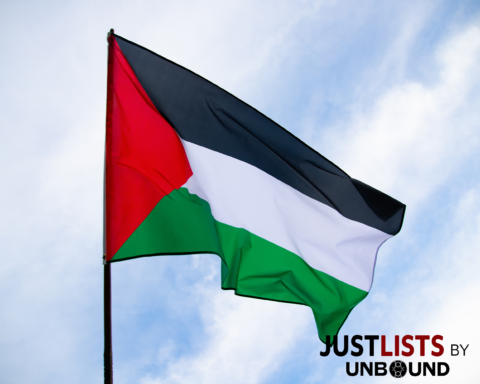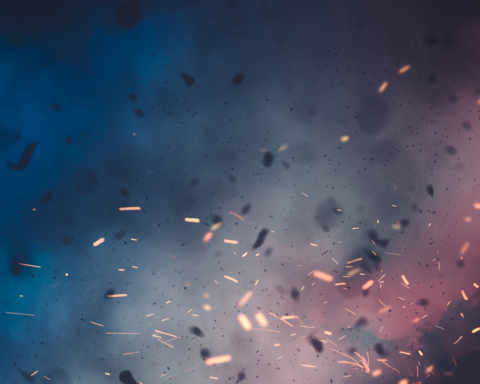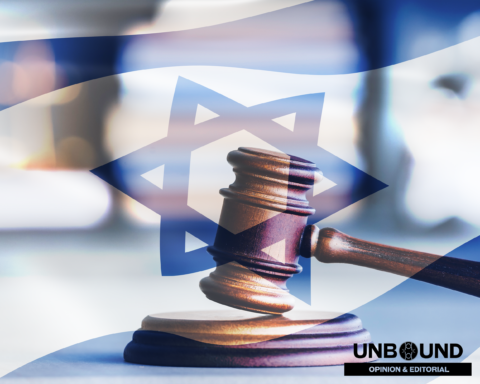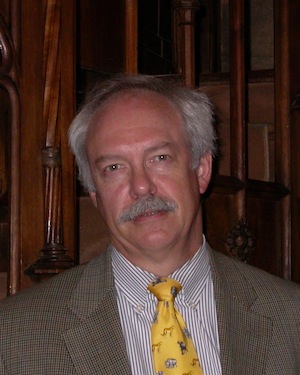
So many experiences come to mind when I think about my trip to Israel/Palestine. It’s been almost 18 months since I had the privilege of traveling to Israel/Palestine with the Presbyterian Peacemaking Program as part of the Mosaic of Peace Conference (2014). It was a remarkable trip. I was blessed with wonderful travel companions and the chance to see for the first time a part of the world that has been the center of my life since my confirmation in the 1990s.
We saw an abundance of sites where one or another Biblical event is believed to have taken place. We visited many cities referenced in scripture. The sheer number makes it easy for these towns and holy sites to seem like one jumbled blur in my mind, but there are certain memories that I remember quite clearly. I remember standing on the Mount of Olives and looking over to the Temple Mount. I remember walking through the streets of Jerusalem. I remember our trip to the Jordan River and watching Christians from various countries singing and dancing as they approached the shallow, murky, lackluster waters.
___________________________________________
The more I think about this playground, the more it seems to me a symptom of a chronic, if not terminal, disease.
___________________________________________
My absolute favorite experience was our boat trip across the Sea of Galilee. There were no merchants trying to sell ‘authentic’ merchandise supposedly used by some biblical figure from antiquity. There was no historical marker indicating that we were in the presence of a holy spot. There was no crowd on holy pilgrimage pressing in on us because we stood in the way of their chance to connect with the divine. I felt a sense of peace on those waters. I imagined the water and coastline were just as Jesus and the disciples experienced them. I felt like I could understand Jesus’ desire to go out on the water to get away. I could even appreciate the fear of the disciples as we traveled across the lake in a storm that caused the boat to bounce over and even into the waves!

However, all of these experiences pale in comparison to one image that continues to stick with me. The memory is of a playground. It looked like it might have seen its glory days generations ago. The equipment was rusted and worn. A mosaic of faded cartoon characters adorned the rear wall. Quite honestly, it looked eerie, like a scene out of a Hollywood horror movie. Tall walls surrounded the entire playground, with rod iron fencing on top. Maybe this was intended to defend the children at play, but I couldn’t help thinking that these walls could just as easily keep children out of this space. The walls were so tall that, had we been walking the streets, I doubt I would have noticed this specter that continues to haunt me. It just so happened to have caught my attention while riding on our bus from one site to another.
I think what shocked me most about this playground was that it was the only one that I had seen the entire trip. Don’t get me wrong – I saw plenty of children. I saw children as we walked through Jerusalem and Bethlehem, passed by settlements, and navigated the maze of streets in a United Nations refugee camp. Children swarmed around us in many cities selling bracelets and begging for our attention. Children, unaccompanied by parents, walked beside us down the abandoned downtown streets of Hebron, a city occupied by the Israeli army. Children were everywhere in Israel/Palestine, but this was the first and only real playspace that I saw.
___________________________________________
This same system that deprives certain communities of their culture, is systematically robbing children of their childhood.
___________________________________________
In general I don’t pay much attention to playgrounds. I certainly did not intend to travel to this land called holy to critique their recreational equipment. However, the more I think about this playground, the more it seems to me a symptom of a chronic, if not terminal, disease. The same system that robs people of their family lands and farms, the same system that has built an ominous wall in the name of defense, the same system that encourages foreigners to populate nearly vacant settlements – this same system that deprives certain communities of their culture, is systematically robbing children of their childhood. The playground is just one symptom.

Photo Credit: Erin Dunigan
One evening during the conference, we heard from an Israeli veteran who is a leader in a movement of Israeli soldiers called Breaking the Silence. He told us harsh and heartbreaking stories about his experience in the military, stories of practices he considers unjust but that the State of Israel considers necessary to solidify defense. He talked about using children as shields when patrolling neighborhoods. He talked about marching kids at gunpoint in front him as he and other soldiers traveled through neighborhoods. He talked about provoking kids to throw rocks in order to legitimize the Israeli military’s desire to be heavy-handed. These kids, it seems to me, are learning their role in this terrible system of oppression. And when they play their part correctly, they wind up as collateral damage.
According to Matthew’s gospel the children in this land faced similar realities in the years following the birth of Christ. In a fear-driven attempt to maintain his power, scripture reads that Herod called for the murder of all the children under 2 years of age in and around Bethlehem, while Joseph, Mary, and newborn Jesus escaped to Egypt. Herod’s systemic oppression robbed children of their lives as he tried desperately to hold on to power. In much the same way, the current system of Israeli occupation robs Palestinian children of their childhood in the name of maintaining power and ‘security’.
___________________________________________
He talked about using children as shields when patrolling neighborhoods.
___________________________________________

Photo Credit: Ray Roberts
I wonder if Rachel, whose tomb is not that far from this wretched playground, weeps for these children and refuses to be consoled (Matthew 2:18). I wonder if our Christmas celebrations, retelling the blessed the birth of the Christ child, should also incorporate time for mourning and condemning the evil system that would murder those children around Bethlehem days later. Maybe if we commemorated the suffering of the children of Bethlehem in the days following our celebration of the gift of Christ’s birth, we might also see the struggles of children in the region today differently.
I know it is just one playground, but it is the only one that I saw. I know it is just one playground, but it was in such terrible shape. The playground troubles me.
Rev. Fred Rogers, a Presbyterian minister who many knew from his children’s show Mr. Rogers’ Neighborhood, once said, “Play is often talked about as if it is relief from serious learning, but for children play is serious learning…children use play as a way to cope with life and to prepare for adulthood”.
What about these Palestinian children? What are they learning? How do they cope? What can we and the adults in their lives do to nurture their growth?
___________________________________________
According to Matthew’s gospel the children in this land faced similar realities in the years following the birth of Christ.
___________________________________________
Frederick Douglass, who endured a childhood in American slavery and became a great orator and Abolitionist, warns us that, “It is easier to build strong children than to repair broken men (sic).” We must do something about a system that destroys childhood. We must say something about a system that will not allow children to be children.

It has been almost 18 months since my trip. While I think about this experience and the playground often, I still have no resolution. I am almost ashamed to admit that I can offer no easy answers to address the systemic injustices that plague the children of Palestine. Yet during this season of Advent and Christmastide a call to action rings clear.
During this season of Advent and Christmastide, we are reminded that we are called to wait and work in hope. As Advent people, awaiting the promised peace of the kingdom that is and is not yet, we are invited to participate in God’s activity of peacemaking. It is my hope that sharing my experience will, at the very least, encourage you to research what you can do.
___________________________________________
I wonder if Rachel, whose tomb is not that far from this wretched playground, weeps for these children and refuses to be consoled.
___________________________________________
I leave you with the words of the Rev. Dr. Howard Thurman. Each year around this time, I dust off this poem to remind me of what must be done in response to the gift and the celebration of Christ’s birth. May his words remind us, inspire us, and move us to action.

Photo Credit: Jerrod Lowry
“When the song of the angels is stilled,
when the star in the sky is gone,
when the kings and princes are home,
when the shepherds are back with their flocks,
the work of Christmas begins:
to find the lost,
to heal the broken,
to feed the hungry,
to release the prisoner,
to rebuild the nations,
to bring peace among the people,
to make music in the heart.”
*****
AUTHOR BIO: Reverend Jerrod B. Lowry, a Teaching Elder in the Presbytery of Utah, pastors Community of Grace Presbyterian Church in Sandy. Jerrod is a 36-year-old pastor who hails from Augusta, GA. Before coming to his current church, Jerrod was the pastor of Saint Paul Presbyterian Church in Louisburg, NC and the Associate for Specialized Ministries for the Presbytery of New Hope. Jerrod is a proud graduate of Johnson C. Smith Theological Seminary in Atlanta, GA.






Unbound Social